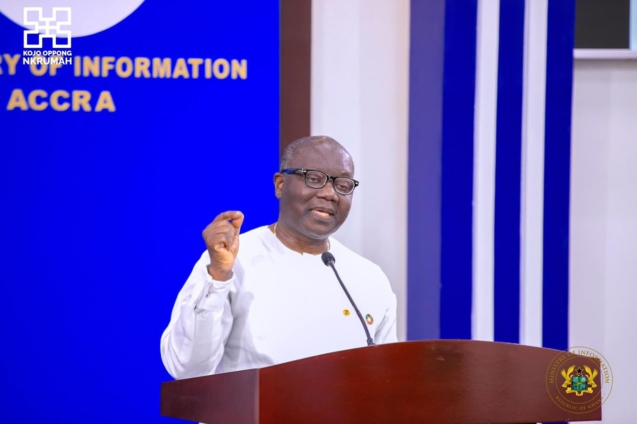Ghana’s eurobonds decline as government offer better terms to local securities investors
Ghana’s dollar bonds have fluctuated as concerns rise over the government’s offer of better terms to investors in local government securities, which may shift a bigger burden of a planned restructuring onto holders of the external debt.
The eurobond maturing January 2026, on which the nation missed a coupon payment last week, was little changed after S&P Global Ratings downgraded the note to default. Securities due 2027 and 2035, on which coupon payments are due next month, fell marginally.
Ghana’s three-pronged approach to its debt restructuring, which includes a swap for local securities, a suspension of payments on eurobonds, and negotiations under the Group of 20 Common Framework for bilateral debt, has unnerved investors as authorities took the decisions without consulting them.
While the government has sweetened its swap proposal for cedi-denominated debt, it also raised the possibility that terms offered to other creditors would have to be tougher. The restructuring is needed to unlock an International Monetary Fund bailout.
“I see a positive and a negative side,” said Carlos de Sousa, a money manager at Vontobel Asset Management in Zurich, which holds Ghanaian bonds.
“On the positive side, the government is showing flexibility to reach an amicable solution with domestic bondholders instead of imposing a restructuring. On the negative side, if the domestic debt restructuring is too modest, then a larger burden may have to fall on external creditors.”
Ghana is restructuring most of its public debt, estimated at ¢467 billion cedis ($39.2 billion) as at the end of September, to qualify for a $3 billion bailout from the International Monetary Fund. Local bondholders have been asked to voluntarily exchange ¢137.3 billion of debt for new bonds.
The government has also suspended interest payments on $13 billion of eurobonds, as well as commercial loans and most bilateral obligations. It has further opted in for debt relief under the G20 Common Framework. The Paris Club is working to set up a joint committee of bilateral lenders to start the talks.




Whatever happens, we hope it leads to success.